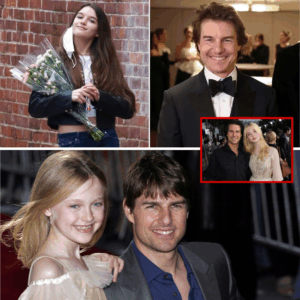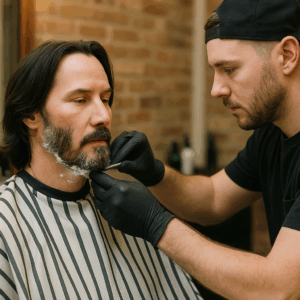HBO’s The Last of Us Season 2, once heralded as a landmark in video game adaptations, has descended into chaos, with its reputation tarnished by relentless fan backlash and controversies surrounding star Bella Ramsey. Premiering on April 13, 2025, the season has faced a storm of criticism over its creative choices, casting decisions, and Ramsey’s off-screen behavior, plunging the series into what many are calling a full-blown disaster. Despite critical acclaim and 16 Emmy nominations, including one for Ramsey’s portrayal of Ellie, the show’s audience approval has plummeted to a shocking 37% on Rotten Tomatoes, a stark contrast to Season 1’s 86%. As the fallout intensifies, Ramsey finds themselves at the center of a firestorm, with fans demanding recasts and HBO scrambling to salvage the franchise’s future.
A Promising Start Derailed
When The Last of Us debuted in 2023, it was a cultural juggernaut, earning HBO its second-most-watched premiere in a decade and amassing nearly 32 million viewers in its first 90 days. Adapted from Naughty Dog’s acclaimed video game, the series, led by Pedro Pascal as Joel and Bella Ramsey as Ellie, was praised for its faithful yet innovative storytelling. Season 2, based on the controversial The Last of Us Part II, promised to delve deeper into Ellie’s journey, introducing new characters like Abby (Kaitlyn Dever) and Dina (Isabela Merced). Expectations were sky-high, with showrunners Craig Mazin and Neil Druckmann teasing bold narrative shifts to match the game’s polarizing plot.
However, the season’s debut sparked immediate controversy. The premiere episode, which depicted Joel’s brutal death—a pivotal moment from the game—drew outrage from fans who felt the adaptation rushed the moment or deviated too far from the source material. Social media platforms like X and Reddit exploded with criticism, with posts calling the writing “atrocious” and accusing HBO of “butchering” the story. The season’s focus on Ellie’s older, more hardened persona at age 19, combined with its exploration of LGBTQ+ themes, reignited debates that had plagued the game’s 2020 release, including accusations of “woke” storytelling and fan dissatisfaction with Ramsey’s casting.
Bella Ramsey’s Casting Controversy
Bella Ramsey, who uses both she/her and they/them pronouns, has been a lightning rod for criticism since their casting as Ellie was announced in 2021. Fans of the game, voiced by Ashley Johnson, argued that Ramsey didn’t resemble the character physically, citing differences in facial features and body type. While Ramsey’s Season 1 performance earned Emmy and Golden Globe nominations, proving their ability to capture Ellie’s emotional depth, the time jump in Season 2—where Ellie is depicted as older and more muscular in the game—intensified scrutiny. Fans on Reddit and X have called Ramsey “miscast,” with some suggesting actresses like Cailee Spaeny or Elliot Page as better fits for an older Ellie.
The backlash has been particularly vicious, often veering into personal attacks. Posts on X have labeled Ramsey “the ugliest woman on the planet” and “a progressive clown,” with some users sharing photoshopped images replacing their face with monstrous characters. The toxicity, largely driven by a vocal subset of fans aligned with conservative ideologies, has targeted Ramsey’s nonbinary identity and physical appearance, echoing the homophobic and misogynistic vitriol that plagued the game’s release. Ramsey’s decision to deactivate their social media accounts in April 2025, ahead of Season 2’s premiere, was a direct response to this harassment. In an interview with The Hollywood Reporter, they admitted, “I always knew I’d leave social media one day. With the show coming out, it just felt like the right time to avoid Twitter and Reddit.”
Creative Choices Spark Fan Outrage
Beyond Ramsey’s casting, Season 2’s creative decisions have fueled the backlash. The season’s adaptation of The Last of Us Part II introduced significant changes, including altering key scenes like Tommy’s quest for justice and replacing Joel’s confessional moment with a conversation involving a new character, an alcoholic therapist. Fans have criticized these deviations, arguing they dilute the emotional weight of the game’s narrative. The town hall scene, where Ellie delivers a speech described as “amateurish,” has been singled out as a low point, with one Reddit user lamenting, “It’s like a fourth-grader wrote it.”
The season’s handling of Ellie’s relationship with Dina has also drawn ire. While the game’s portrayal of their romance was a highlight for many, fans have accused Ramsey of lacking chemistry with Merced, with one X post stating, “Bella completely ruined the Ellie-Dina dynamic.” The inclusion of LGBTQ+ themes, a cornerstone of the game, has reignited homophobic backlash, mirroring the review-bombing of Season 1’s third episode, “Long, Long Time,” which focused on Bill and Frank’s love story. Despite Ramsey’s defense of these storylines in a 2023 GQ interview—“If you don’t want to watch because of gay characters, that’s on you”—the vocal minority continues to dominate online discourse.
HBO’s Response and Ramsey’s Struggles
HBO and showrunners Mazin and Druckmann have stood by Ramsey, emphasizing their talent and emotional authenticity. Mazin, in a recent podcast appearance, expressed protectiveness over Ramsey, recalling a pre-casting warning to them and their parents about the potential for negative attention. “I told Bella there’d be a lot of scrutiny, and some of it would be negative,” he said. “But their performance speaks for itself.” Despite critical praise, with reviewers calling Ramsey’s portrayal “raw and compelling,” the audience backlash has overshadowed these accolades, with some fans demanding a recast for a potential Season 3.
Ramsey has openly discussed the toll of filming Season 2, particularly scenes involving Joel’s death. In an interview with The Independent, they described the emotional weight of losing Pedro Pascal’s character, a close friend off-screen, and their struggle to match Ellie’s physicality from the game. “I got fixated on Ellie’s strong arms,” Ramsey admitted, noting their intensive training in boxing and jiu-jitsu. “But my body type isn’t that. Craig told me it’s about feeling strong, not just looking it.” This vulnerability has won Ramsey some sympathy, with supporters on X praising their resilience, but the relentless online hate has left them “in hot water” with a significant portion of the fanbase.
Financial and Cultural Implications
The backlash has taken a toll on The Last of Us’s viewership. While Season 2’s premiere outperformed Season 1’s, drawing 8.5 million viewers, subsequent episodes have seen a steady decline, with Episode 3 dropping to 6.2 million. HBO’s decision to release episodes weekly, rather than all at once, has allowed negative buzz to fester, with social media amplifying complaints about pacing, writing, and Ramsey’s performance. The show’s 91% critics’ score on Rotten Tomatoes contrasts sharply with its 37% audience score, highlighting the divide between professional reviews and fan sentiment.
Financially, the impact is less clear, as HBO does not disclose streaming revenue. However, the show’s production costs, estimated at $15–20 million per episode, mean that sustained viewership is critical for profitability. The backlash has also sparked concerns about the franchise’s future, with Mazin and Druckmann hinting that Season 3 may be the last, though a third game remains a possibility. The cancellation of a planned multiplayer game in 2024, coupled with fan discontent, has raised questions about whether The Last of Us can maintain its cultural dominance.
A Polarized Fandom and Industry Fallout
The The Last of Us disaster reflects broader tensions in the entertainment industry, where fan expectations and cultural politics collide. The show’s progressive themes, including its LGBTQ+ representation, have been a double-edged sword, earning praise from inclusive audiences but alienating others. The toxicity directed at Ramsey mirrors similar campaigns against actresses like Brie Larson and Daisy Ridley, highlighting a pattern of gendered and ideological attacks in fandoms. Posts on X have drawn parallels, with one user noting, “Bella Ramsey’s getting the Star Wars treatment—hated for existing in a role fans don’t like.”
For Ramsey, the backlash is a personal and professional challenge. At 21, they remain a talented performer with a bright future, but the intensity of the criticism has led to speculation about their role in Season 3. Some fans have launched petitions for a recast, while others defend Ramsey, arguing that the writing and direction, not their performance, are to blame. One supportive X post read, “Bella Ramsey carried Season 1. The hate is just misogyny and homophobia dressed up as ‘criticism.’”
What’s Next for HBO and Ramsey?
As The Last of Us Season 2 continues to air, HBO faces a delicate balancing act. The network has doubled down on promoting the show’s critical success, highlighting its Emmy nominations and strong performances. However, the fan backlash and declining viewership suggest that rebuilding trust will be an uphill battle. Mazin has hinted at adjustments for Season 3, potentially addressing fan concerns, but the show’s commitment to its progressive roots seems unlikely to waver.
For Bella Ramsey, the road ahead is uncertain. Their decision to step away from social media has shielded them from some of the vitriol, but the public nature of the backlash has left them “humiliated” in the eyes of detractors. Nevertheless, Ramsey’s talent and resilience suggest they will weather the storm, with upcoming projects likely to showcase their range. As The Last of Us grapples with its tarnished legacy, the saga of Season 2 serves as a cautionary tale about the perils of adapting beloved source material in a polarized world.


